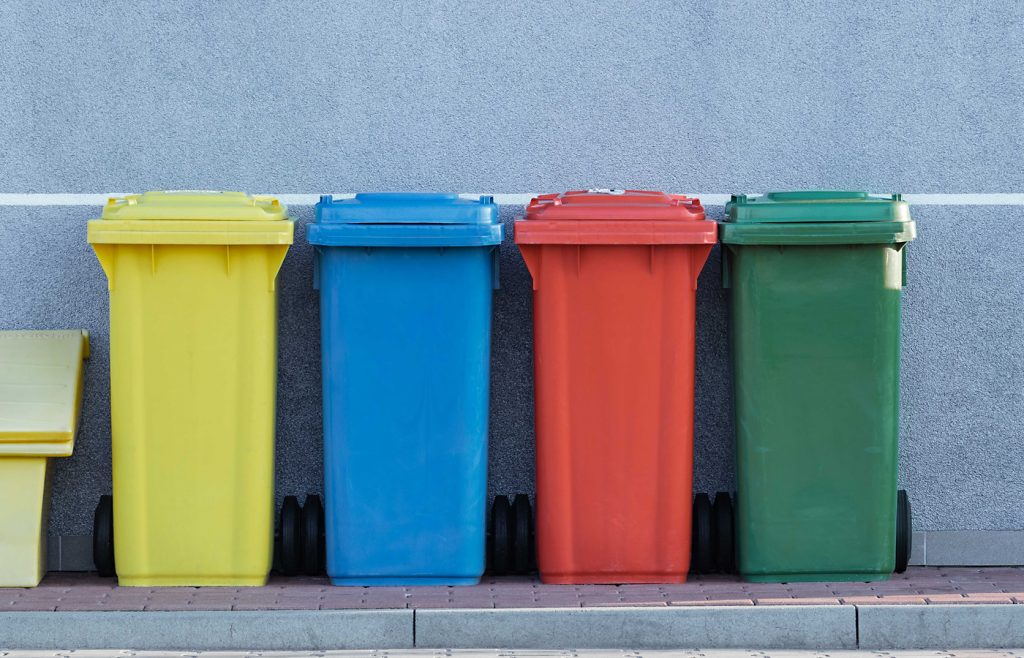
How much do you throw away on any given day? According to the EPA, our collective trash ads up to a whopping 251 million tons of solid waste a year. That’s about 4.6 pounds of garbage per person per day, up from 2.7 pounds in 1960. Only 24 percent of that waste gets recycled. The other 76 percent is buried in landfills or incinerated, a process that produces toxic ashes, which must then be put into a landfill.
The problem isn’t just about filling up landfills and toxic incineration. The manufacturing and distribution of the products we buy and the management of the resulting waste both create heat-trapping greenhouse gasses and contribute to the problem of global warming.
Interested in finding ways to reduce your own trash output? Consider doing a trash audit. Trash audits tell you how much you are throwing away and what’s in your trash. Make it a science experiment for the whole family, and don’t forget to wear your rubber gloves!
What’s in Your Trash?
To estimate the total trash you produce in a year, weigh a week’s worth of trash in garbage bags and multiply the weight by 52 weeks.
To determine the make-up of your family’s trash, you’ll need to save a week’s worth of garbage in garbage bags. Collect food waste and yard waste in separate sealed containers. At the end of the week, put on some rubber gloves and separate the contents of the garbage bags into various garbage bags by category, such as glass, newspapers, plastic bottles, aluminum cans, white paper, magazines, and other non-food waste. Weigh the bags to find out how much waste you are producing in each category.
Look at the categories and determine what part of your trash output you can reduce by recycling, composting, or minimizing your output in the first place. Try the following tips to get started.
How to Produce Less Trash
Reduce the amount of waste you generate in the first place. Buy less. Avoid buying products with excessive packaging. Buy long-lasting alternatives to single-use items, such as reusable razors, cloth napkins, cloth diapers, and cloth kitchen towels. Bring your own reusable cloth bags whenever you go to the store. Have yourself removed from junk mailing lists.
This website offers great tips on reducing the amount of junk mail in your mail box: http://www.privacyrights.org/fs/fs4-junk.htm.
Even Better, Reuse Things
Reusing things is better than recycling them because they do not need to be reprocessed before they can be used again. Reuse plastic containers and jars as food containers, use both sides of the paper, and cut up old clothes to use as cleaning rags. Fix what is broken, rather than buying new. Give away unwanted items or sell them.
Check out this cool way to reuse things. Freecycle is an online organization that helps connect people who have things they no longer need with people who can use them. There are groups in Fairfield, Iowa City, and Des Moines. Start one in your own area!
Recycling: The Old Standby
Recycle as much as possible; it keeps things out of landfills and incinerators. Buy things with as much recycled content as possible. Theoretically, anything is recyclable, but your local waste management organization may only accept certain items for recycling. Find out what is recyclable in your area, and avoid buying things that are not accepted. Compost newspapers, yard waste, and kitchen waste (with the exception of meat and dairy).
For more information on recycling, visit the Keep America Beautiful. website.
For more information on composting visit: www.epa.gov/composting/basic.htm.
Hazardous Household Waste
Hazardous household waste should not be disposed of in your regular trash. If old computers, cell phones, and other electronics are still working, consider donating them. Otherwise, they must be recycled to recover the valuable materials they contain and prevent hazardous materials like lead from entering the waste stream.
Trash Audit
Now you should have all the tools you need to get started reducing your waste output significantly. If you want to check your progress, spend a month implementing your own personal waste-reduction program and then do another trash audit to see what a difference you are making. Consider getting permission to do the same at your workplace.
More Resources
For more information on disposing of electronics visit:
http://www.epa.gov/epaoswer/hazwaste/recycle/ecycling/donate.htm
